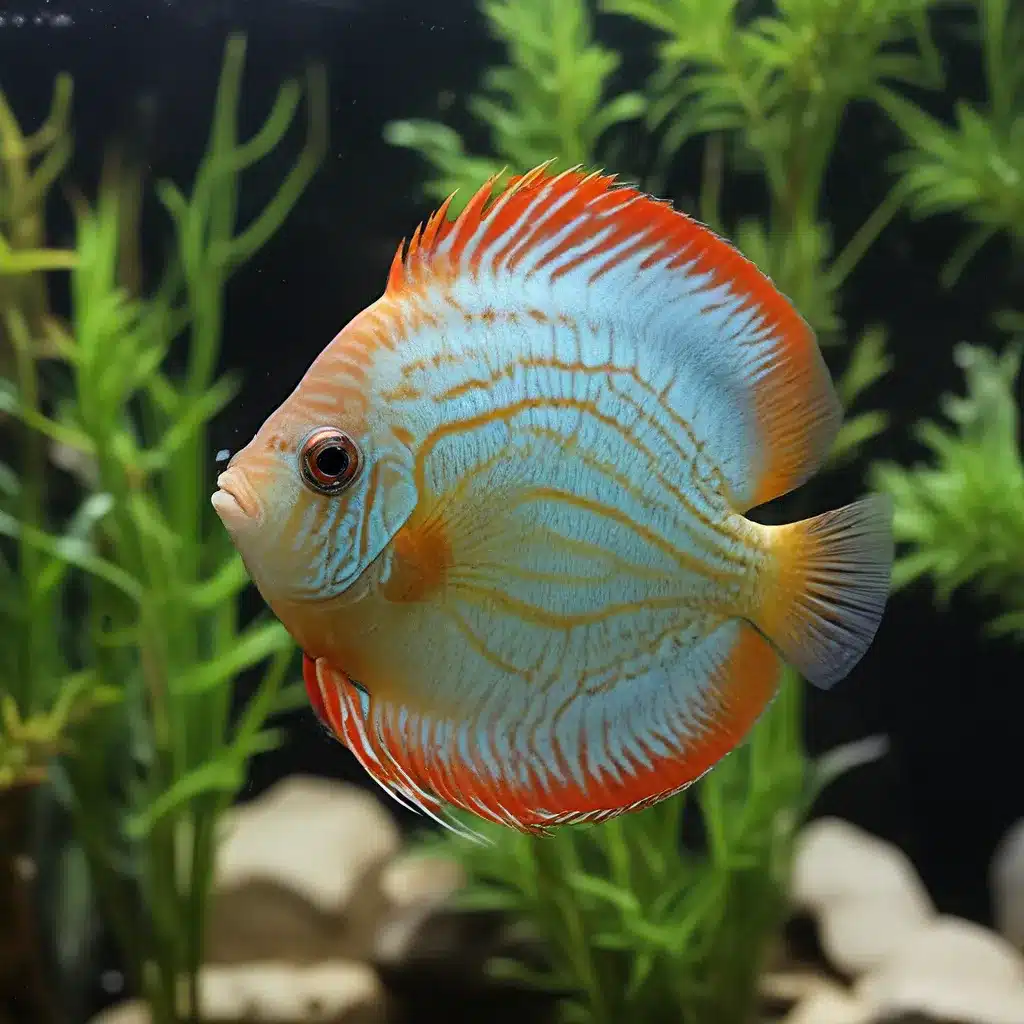
Discus fish, often referred to as the “king of the aquarium,” are undoubtedly one of the most captivating and challenging species to keep in a home aquarium. With their vibrant colors, majestic presence, and unique behavioral quirks, these cichlids have captured the hearts of aquarium enthusiasts worldwide. However, unlocking the secrets to successful discus care can be a daunting task, even for experienced aquarists.
Understanding the Discus Fish Personality
Discus fish are renowned for their social nature and intricate social hierarchies. In the wild, these fish form tight-knit groups, often swimming in synchronized patterns and engaging in intricate courtship rituals. In the confines of an aquarium, it’s essential to recognize and respect these innate behaviors to ensure the well-being of your discus.
One of the key aspects of discus care is providing ample space and compatible tank mates. Discus are sensitive to overcrowding and can become stressed or aggressive if their tank environment doesn’t meet their specific needs. Carefully selecting tank mates that are peaceful, non-territorial, and of a similar size is crucial to maintaining a harmonious community.
Creating the Ideal Discus Habitat
Recreating the natural habitat of discus fish is crucial for their long-term health and vitality. These fish thrive in warm, softwater environments with a pH range of 6.0-7.0 and a temperature between 82-86°F. Maintaining these optimal water parameters requires a robust filtration system and regular water changes, typically 25-50% of the total volume per week.
Aquascaping for a discus aquarium should focus on creating a densely planted environment with a mixture of tall, mid-ground, and low-growing plants. This not only enhances the visual appeal of the tank but also provides essential hiding spots and spawning sites for the discus. When selecting plants, opt for species that thrive in the soft, acidic water preferred by discus, such as Amazon Sword, Java Fern, and Anubias.
Feeding Discus Fish: A Delicate Balancing Act
Discus fish are known for their unique dietary requirements, which can be a challenge for new aquarists to navigate. These cichlids are primarily carnivorous, with a preference for live or frozen foods, such as brine shrimp, bloodworms, and high-quality flakes or pellets. Providing a varied diet is essential for maintaining the vibrant colors and overall health of your discus.
It’s crucial to avoid overfeeding, as this can lead to water quality issues and potentially harm the fish. A good rule of thumb is to feed your discus 2-3 times per day, offering only as much food as they can consume within a few minutes. Supplement their diet with occasional vegetable matter, such as boiled zucchini or spinach, to ensure a balanced nutritional intake.
Troubleshooting Common Discus Issues
Despite their regal appearance, discus fish can be susceptible to a variety of health problems if their environment is not properly maintained. One of the most common issues aquarists face is disease outbreaks, which can quickly spread through a discus community if not addressed promptly.
Common discus diseases include ich, fin rot, and hole-in-the-head disease, all of which can be triggered by poor water quality, stress, or improper care. Regularly monitoring your discus for any signs of illness, such as loss of appetite, lethargy, or abnormal behavior, and taking immediate action is crucial for preventing and treating these conditions.
When it comes to water quality management, discus are particularly sensitive to ammonia and nitrite spikes, which can have devastating effects on their health. Maintaining a stable, cycled aquarium through frequent partial water changes and effective filtration is essential for the long-term well-being of your discus.
Unlocking the Rewards of Discus Keeping
Caring for discus fish may require a higher level of commitment and attention compared to some other aquarium species, but the rewards of successful discus keeping are truly unparalleled. These magnificent creatures, with their mesmerizing colors and captivating behaviors, can transform an aquarium into a true work of art.
By understanding the unique needs of discus, providing them with an optimal habitat, and addressing any issues that may arise, aquarists can unlock the secrets to long-term discus care and enjoy the majestic presence of these “kings of the aquarium” for years to come. Remember, with patience, dedication, and a passion for aquatic life, the journey of discus keeping can be an incredibly rewarding and fulfilling experience.
For more information on keeping discus and other captivating fish species, be sure to explore the resources available on KingAquarium.com, your one-stop destination for all things aquarium-related.

